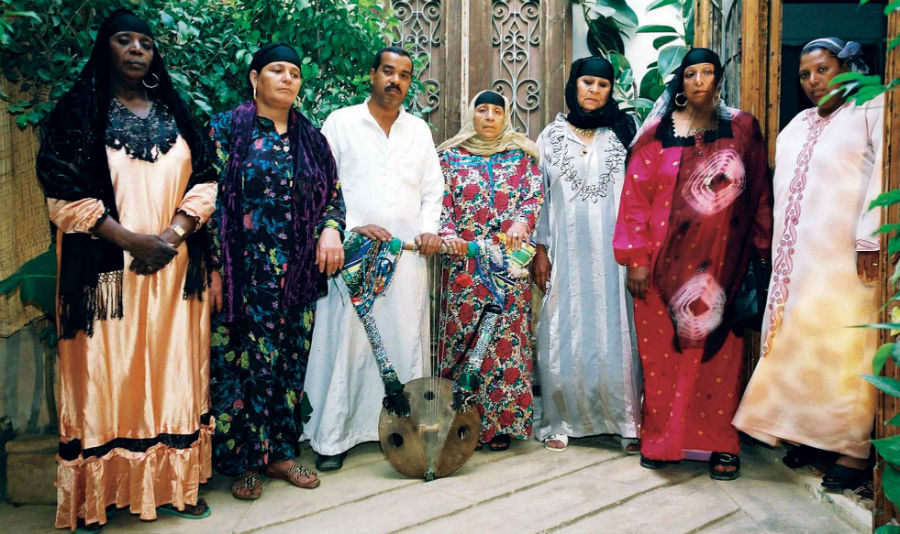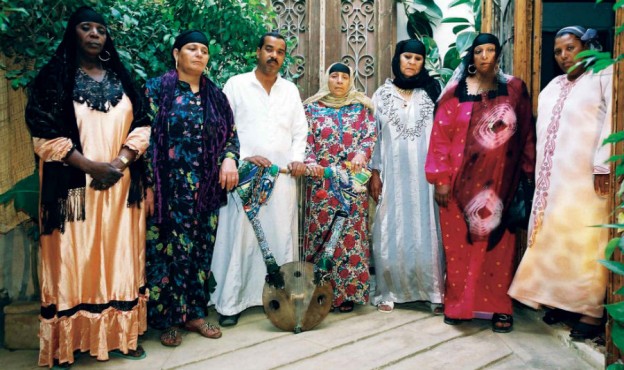 Clandestino Botnik 27 July Bottna
Clandestino Botnik 27 July Bottna
Zār is a community healing ritual of drumming and dancing whose tradition is carried mainly by women (men have the second roles) and whose main participants are women.
This ritual has been widely misconceived as a form of exorcism. However, the goal is to harmonize the inner lives of the participants. The Zār is a space in which women can work out the tensions and frustrations of social constraints which limit their movements, their dress, their voices and even their dreams. Lower class women who live in poverty are under a great deal of stress in their daily lives. Yet there are few if any outlets for them.
Zar music is raw and unpolished. The lyrics of these songs are minmal and repetitive. They speak of the desert and the region’s long history. A featured instrument in the Zar ritual in Egypt is the tamboura, the six-string lyre, which, like the Zar practice itself, exists in various forms in a an area stretching across East Africa to the Arabian Peninsula – a relative to the Indian “drone” instrument tamboura known from raga music. Other instruments are the Mangour, a leather belt sewn with many goat hooves and various percussion instruments. Call and respons singing, maracas. The hypnotic drum rhythms grow gradually, accelerate and explode in a percussion climax just as dawn breaks. It is an ancient purification rite and it aims at pacifying numerous spirits. Communication with unseen spirits is driven by the insistent and varied drum rhythmic interaction which can lead to an altered state of consciousness and even, trance. It is also disappearing, as Islamic fundamentalists crack down on what they believe to be animistic beliefs. That is why I wanted to preserve this music and present it to the world community – so that it is not lost or forgotten.
It appears, however, that things are changing for the zar in Egypt, and it is becoming more publicly visible, as a musical, and ritual, practice. In Cairo, Mazaher is the foremost example of this, a group in which women play a leading role and are connected to a most ancient tradition practiced in several countries in the region.
